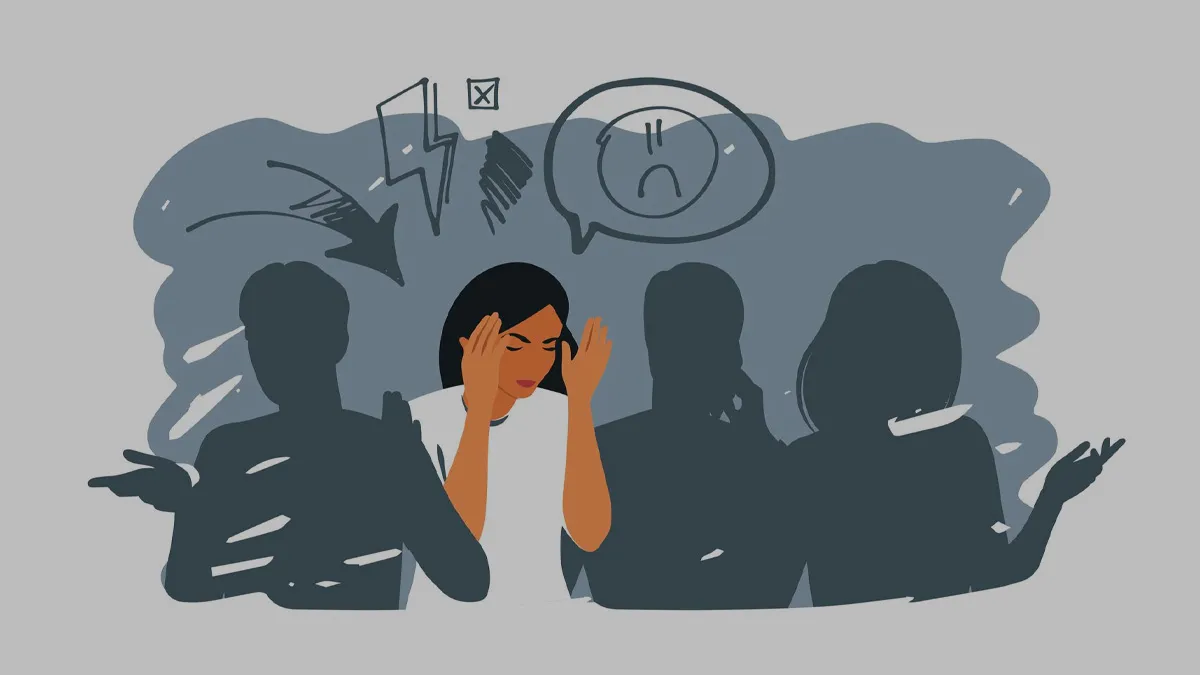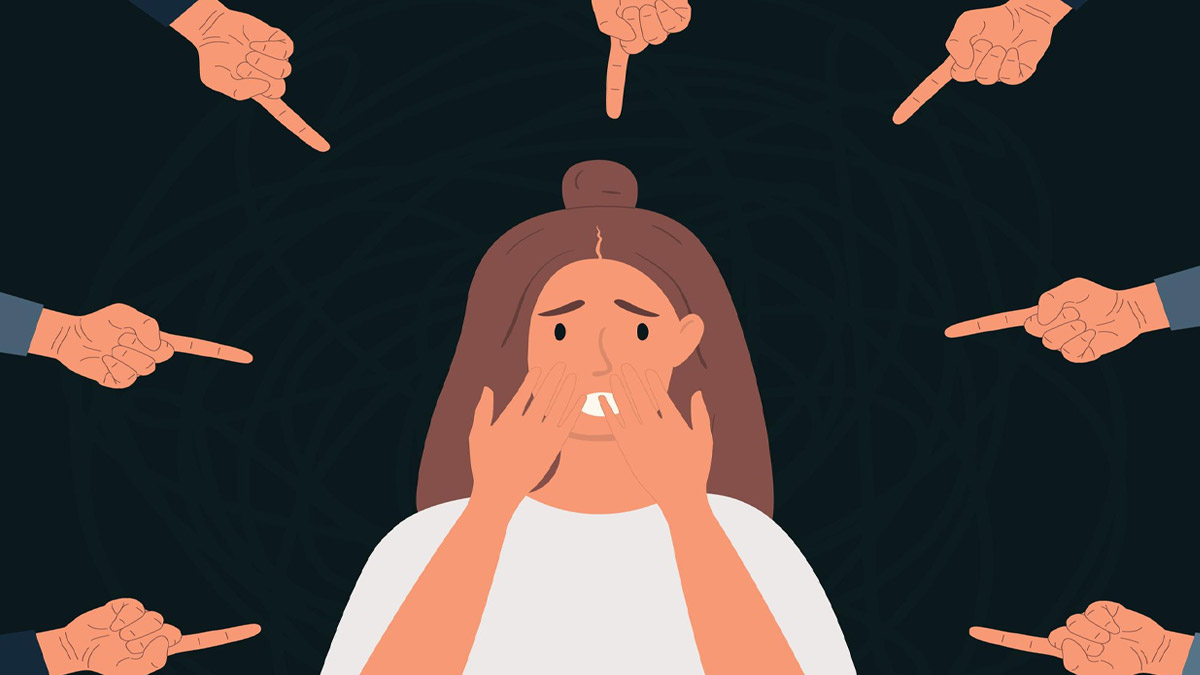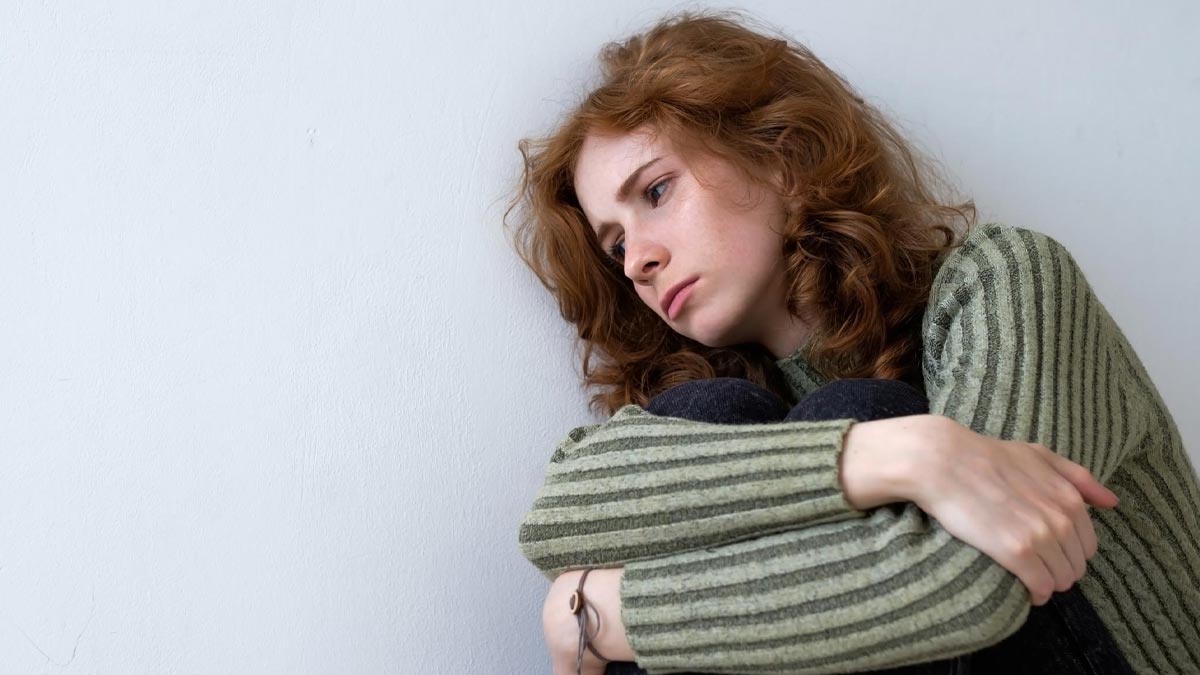
It's normal to feel apprehensive about giving a speech or meeting someone new. But when those butterflies become an aching heart, racing mind, and a frantic desire to stay away from people altogether, it may be more than shyness it may be social anxiety.
Table of Content:-
CHECK YOUR
MENTAL HEALTH

In a world that sometimes rewards extroverts and calls introverts "just shy," many socially anxious people fly under the radar. But learning the difference between shyness and a treatable anxiety disorder can be the first step towards healthier mental living.
What Is Shyness, Really?
Shyness is a personality factor. It entails feeling self-conscious or shy in new situations or with new people. The majority of shy people open up over time, and their discomfort is normally minor and tolerable.

Social Anxiety: When Does It Becomes a Struggle?
Social anxiety disorder, however, is a legitimate mental illness that entails intense, persistent fear of being rejected or judged in social or performance situations. It can affect everything from your career development to your social life. According to studies, there are some typical symptoms of social anxiety. These may include:
- Fear that lingers: You overthink about how you look or what others might say—sometimes for days or weeks leading up to an event.
- Physical symptoms: Sweating, shaking, flushing, nausea, or even panic attacks in social situations.
- Avoidance: You start to avoid gatherings, meetings, or interactions even though you want to go deep inside.
- Impairment in everyday life: Your fear prevents you from work possibilities, making pals, or expressing yourself in class or meetings.
Also Read: How Long Should You Really Ice Your Face? Dermat Shares

Difference Between Social Anxiety And Shyness
Both social anxiety and shyness can cause you to feel uneasy among people, but there are a few differences. Shyness tends to disappear with acquaintance and does not significantly interfere with your everyday life. You will feel nervous and uncomfortable at first, but you can still manage. Social anxiety is stronger and more widespread. It does not get better over time and actually gets worse if not handled. It also tends to produce severe bodily symptoms such as perspiring, a pounding heart, or panic attacks. Perhaps most importantly, social anxiety can restrict you from pursuing job, relationship, or activity opportunities involving social engagement.
What Happnes When You Mislabel Social Anxiety as Just Shy
Calling it shyness can delay treatment. People with social anxiety often downplay their struggles or feel too embarrassed to seek help. Unfortunately, this can lead to isolation, depression, low self-esteem, and even substance abuse. Recognising the signs and acknowledging that what you feel is valid and treatable is empowering.
Bottomline
Social anxiety is more prevalent than you know, particularly in our over-connected, appearance-driven age. The trick is to be able to distinguish between regular nervousness and something that is more ongoing. Shyness is who you are. Social anxiety is something you can overcome with the help of others.
Also watch this video
How we keep this article up to date:
We work with experts and keep a close eye on the latest in health and wellness. Whenever there is a new research or helpful information, we update our articles with accurate and useful advice.
Current Version